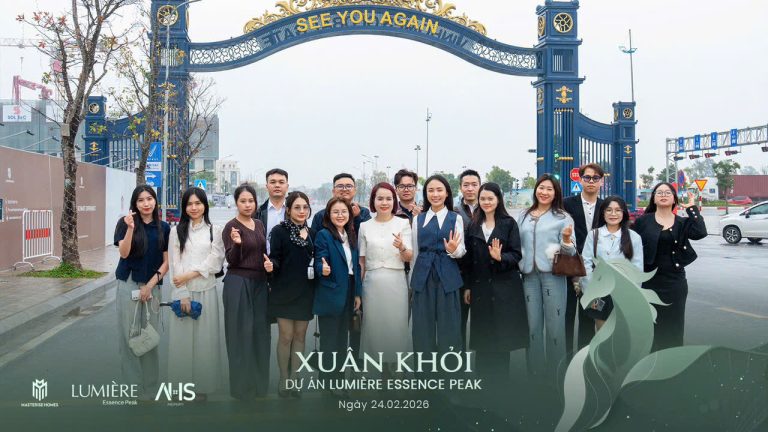Recently, resort real estate products, especially resort villas, are gradually gaining the upper hand. Investors, instead of investing in high-end apartment projects, townhouses, and villas in the city, have now begun to shift to investing in resort real estate in areas with strong tourism potential such as Phu Quoc, Da Nang, Van Don, Sapa, etc. However, this form of investment can bring risks that you sometimes do not expect.
What is the true nature of a resort villa?

Buying a resort real estate product is completely different from buying a normal apartment to live in, because they are an investment product. Invest in the opportunity to make a profit from buying land in developed tourist areas, and also invest in the opportunity to make a profit from business activities on these tourist lands.
It doesn’t matter how far away the villa is from you, it doesn’t matter that you won’t be able to use it freely, but from the “tourism potential of heaven, the profit potential of the land” for you to judge and make investment decisions. Of course, you also need to consider very carefully the investors – those who will take the money and invest for you, building attractive resorts that bring benefits to all villa buyers.
And so, when buying a resort real estate product from an investor, you naturally become a small shareholder contributing to the construction of that Villa area and sharing the profits earned. It can be said that when buying a resort real estate, we are buying a profitable investment opportunity.
Risks from resort villas
Risks from choosing investors
The investor is the one who is primarily responsible for using the capital of investors to build resorts and do business to earn profits. Therefore, if you do not choose carefully, you will definitely "throw money out the window", at risk of losing everything. When choosing an investor, it is necessary to pay attention to the following 3 things:
Visionary investors: The vision and business development orientation of the investor is extremely important. If you choose investors with a long-term strategic vision, a large-scale development orientation, the ability to create real estate products with outstanding and unique values, and most importantly, suitable for customer tastes, then your ability to recover capital is certainly guaranteed up to 30%.
Investors have stable income: The ability to pay profits of an investor needs to be built on solid evidence. And the annual income of the investor is the most reliable evidence to help investors feel secure in investing. Ensuring this factor means you have gained 30% more capital recovery ability. Investors with heart: Customers using resort service packages are mostly middle and upper class people.
Risks from “Profit Commitment”
Profit commitment is definitely the main key that you will hear when learning about resort real estate, because they are essentially an investment product, and as an investment, there must be benefits and profits. However, these commitments are mostly mutual trust, there is no written agreement confirming and committing to return profits. This has many potential risks.
Risks from supply and demand imbalance
As analyzed above, the value of a resort property is built from the value of the land and the value of the villa. If the resort villa you buy is located in a tourist center, it will certainly have to face no small competitive pressure from other similar resorts.
The number of equivalent or higher-end real estate areas is increasing, which means that investment risks are also increasing, because resort tourists are extremely demanding and have high tastes, always wanting to use the highest quality and most advanced services. Vietnam is one of the few tourist countries that has taken the action of giving full planning authority to a single investor for a tourist area. And in Vietnam, only Tan A Dai Thanh has such great incentives.
Risks from the regional and world economic situation
The global recession of 2009 had a strong impact on all major economies in the world. Although Vietnam was less affected by this crisis, its impact on the Vietnamese economy is undeniable. The number of international tourists decreased, the amount of remittances also decreased, causing the Vietnamese tourism and real estate markets to stagnate and not flourish.
Meanwhile, these are the two major markets that determine the revenue from renting out beach villas, and the value of the beach villas. According to experts, the fact that Vietnam only opens up to integration partially, while the rest is still regulated by the state, will help Vietnam avoid major recessions. And in the next 20 years, Vietnam will not be able to fully integrate, and the economy will still need self-regulation by the state. This is a fairly safe signal for those who want to invest in the Vietnamese real estate market.

Risks from regional political situation
Surely you still cannot forget the “East Sea Drilling Rig” incident in the summer of 2013 that caused the Vietnamese economy to collapse. Stock prices continuously fell, nearly 90% of goods exported to China were held back, and investment capital was stagnant due to concerns about a political conflict.
The real estate market has never been so gloomy and hopeless, when even Vietnamese people want to recover their capital to migrate for asylum due to fear of war. However, through examining the way the Vietnamese government handles disputes, along with its soft foreign policy strategy, we can almost confirm that war is extremely unlikely to happen in Vietnam at this stage.
These risks can make investors hesitate in investing. However, if they find a solution, go slowly but surely, investors can certainly grasp the percentage of success when choosing to invest in resort villas. Follow AHS for more information about this field.







